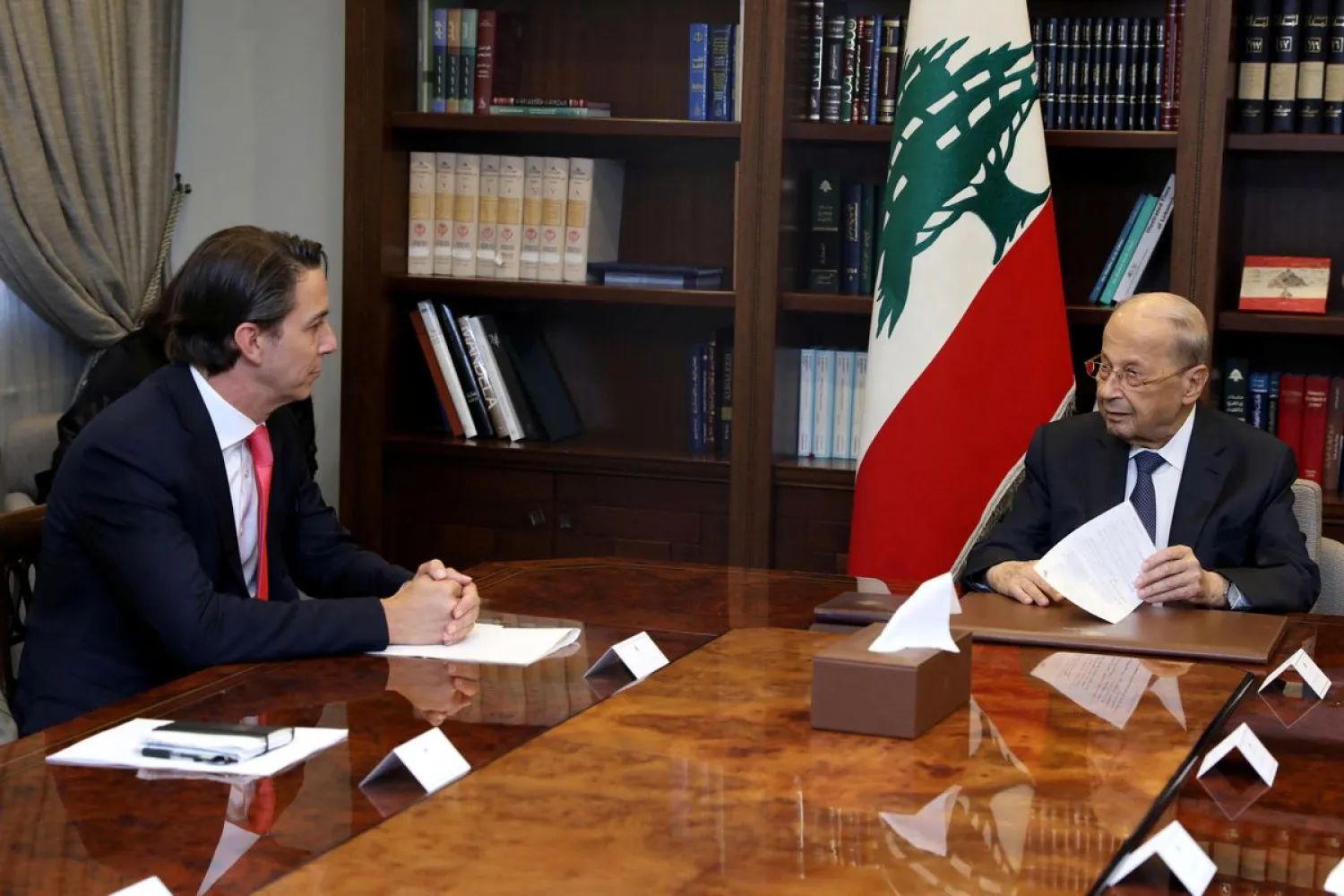Lebanon leaders are holding a meeting Monday to discuss a US proposal to demarcate the maritime border with Israel -- a step that could allow both countries to explore offshore resources.
Lebanon said it had received Saturday a written "offer" from US envoy Amos Hochstein - who is mediating talks between the two enemy states - on a proposal to demarcate the maritime border with Israel.
The offer was not make public, but it raised hopes that a deal would soon emerge after years of negotiations, as cash-strapped Lebanon eyes potential gas resources in the maritime border area.
The US ambassador to Lebanon handed the offer to President Michel Aoun, Parliament Speaker Nabih Berri and caretaker prime minister Najib Mikati, who represent Lebanon's three major sects.
Aoun will meet Berri and Mikati at 3pm local time to discuss Lebanon's "official response to the offer", according to the National News Agency.
A technical team that includes army representatives will meet at 1pm at the presidential palace.
The most recent proposal was greeted by Israel.
Prime Minister Yair Lapid said the bid "strengthens Israel's security and Israel's economy".
Lapid appeared to float an arrangement whereby gas would be produced by a company under a Lebanese license in the disputed Qana prospect, with Israel receiving a share of revenues.
"We have no opposition to an additional Lebanese gas field being developed, from which we would of course receive royalties due us," he said. "Such a field would weaken Lebanese dependency on Iran, restrain Hezbollah and bring regional stability."









